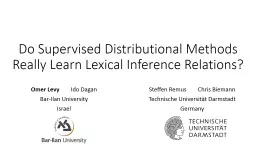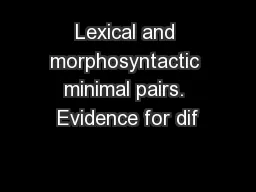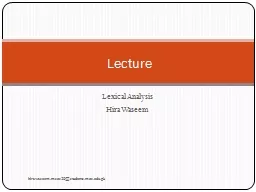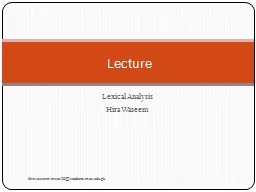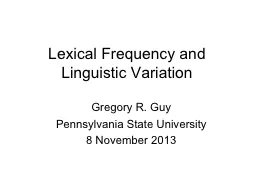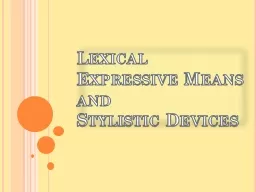PPT-Do Supervised Distributional Methods Really Learn Lexical Inference Relations?
Author : tatyana-admore | Published Date : 2018-10-04
Omer Levy Ido Dagan Bar Ilan University Israel Steffen Remus Chris Biemann Technische Universität Darmstadt Germany Lexical Inference Lexical Inference Task
Presentation Embed Code
Download Presentation
Download Presentation The PPT/PDF document "Do Supervised Distributional Methods Rea..." is the property of its rightful owner. Permission is granted to download and print the materials on this website for personal, non-commercial use only, and to display it on your personal computer provided you do not modify the materials and that you retain all copyright notices contained in the materials. By downloading content from our website, you accept the terms of this agreement.
Do Supervised Distributional Methods Really Learn Lexical Inference Relations?: Transcript
Download Rules Of Document
"Do Supervised Distributional Methods Really Learn Lexical Inference Relations?"The content belongs to its owner. You may download and print it for personal use, without modification, and keep all copyright notices. By downloading, you agree to these terms.
Related Documents

